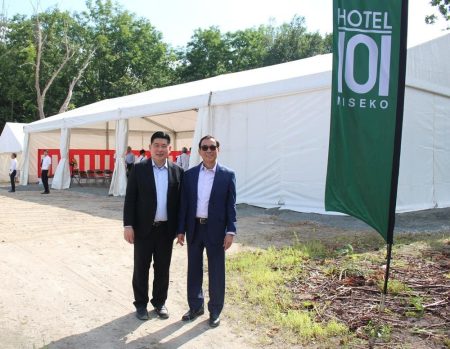Paragraph 1: The Resurgence of Milei
President Javier Milei, the anarcho-capitalist leader of Argentina, has defied expectations and solidified his political standing. Despite initially entering office with limited legislative power and facing widespread skepticism, Milei has effectively exerted his influence on the political establishment, which he derisively labels the "caste." Bolstered by the victory of his ideological ally, Donald Trump, in the US presidential election, Milei has strengthened his position within the global right-wing populist movement. Crucially, his administration’s efforts to control inflation have yielded positive results, offering a much-needed respite to the Argentine public burdened by economic hardship. This relative improvement in purchasing power, while modest, has contributed to a renewed sense of optimism within the population, further reinforcing Milei’s authority.
Paragraph 2: A Wave of Optimism and Milei’s Ascendance
The initial decline in Milei’s approval ratings has reversed, giving way to a resurgence of public support. A prevailing sense of hope for economic improvement has fueled a perception of invincibility surrounding Milei’s administration. This positive momentum coincides with Milei’s rise as a prominent figure in the international "new right" movement, further enhancing his political stature. His image as a libertarian icon has been cultivated and amplified, as evidenced by his recent comparison to "the libertarian John Lennon" by the CEO of the Conservative Political Action Conference (CPAC). Milei’s political clout is arguably at its zenith in his first year in power, marking a remarkable turnaround from the doubts and criticisms that initially surrounded his presidency.
Paragraph 3: Public Opinion and Economic Indicators
Recent polling data underscores the growing positive sentiment toward Milei’s leadership. Surveys indicate increasing public approval of his administration, coupled with a perception of improving personal economic circumstances. "Hope" has surpassed "worry" as the dominant public sentiment, reflecting the shift in public perception since Milei took office. The majority of Milei’s voters express satisfaction with their electoral choice, while a significant portion of those who voted for his opponent, Sergio Massa, express dissatisfaction with the Peronist opposition’s performance. Notably, there has been a marked improvement in the financial well-being of Argentinians, with fewer individuals struggling to make ends meet and a growing number reporting a surplus for savings. Furthermore, inflation, once the primary public concern, has diminished in significance, replaced by other issues such as insecurity, corruption, healthcare, education, low wages, and poverty.
Paragraph 4: Defying Expectations and Embracing Austerity
Milei’s presidency, initially viewed with apprehension and predictions of failure, has surprised many analysts. Despite implementing severe austerity measures, which have resulted in a sharp recession, increased poverty, and a weakened labor market, the public has largely tolerated these hardships. The population’s willingness to endure economic pain in exchange for price stability reflects the deep-seated fear of inflation that permeated Argentine society before Milei’s election. The relative success of Milei’s economic policies, particularly in curbing inflation, has allowed him to retain public support despite the negative consequences of his austerity program.
Paragraph 5: The Inflation Conundrum and Economic Challenges
The success in curbing inflation, a cornerstone of Milei’s economic strategy, is attributed to various factors, including sustained budget surpluses and the continuation of currency controls. However, concerns are emerging about the potential for an artificially strong peso, a situation that could lead to future economic instability. Economists, including some who are ideologically aligned with Milei, caution about the risks of an overvalued currency, drawing parallels to previous economic crises in Argentina, including the period under Mauricio Macri’s presidency, when similar economic policies were implemented. The reliance on currency controls and a successful tax amnesty, along with booming financial markets, has allowed Milei’s administration to maintain control over exchange rates. However, securing further funds from international organizations and attracting real economy investments, alongside regaining market access, are crucial to avoid a repeat of past economic downturns.
Paragraph 6: Political Maneuvering and the Rise of Hubris
Milei and his advisors have displayed shrewd political maneuvering, forging unexpected alliances and consolidating power. Their strategies have effectively neutralized opposition forces, including both the PRO party and elements within the Peronist caucuses. By blocking legislation aimed at barring corrupt politicians from running for office, Milei has demonstrated his ability to control the legislative agenda and undermine his political rivals. The Milei administration’s increasing confidence and ambition, fueled by their perceived successes, may be bordering on hubris. Their belief in a divine mandate to rescue Argentina from economic ruin, combined with their growing international recognition, could lead to overconfidence and potentially undermine their future political prospects. The parallels drawn between Milei’s policies and those of Donald Trump further highlight the potential risks of embracing populist rhetoric and policies. While Milei’s current position appears strong, history is replete with examples of leaders whose rise to power was followed by a precipitous fall, often due to their own overestimation of their abilities.










